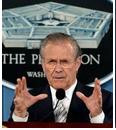Rhetoric
> Technical Communication
Annotated
Bibliography of:
Price, Tiffany E., and Chambers, Mary-Lynn.
"Globalization and the Cultural Impact on Technical Communication." European
Scientific Journal (2016): 93+. Academic OneFile. Web. 11 Oct. 2016.
 This
week’s second annotated bibliography on epistemological alignment looks at the 2016
article by Tiffany Price and Mary-Lynn Chamber, “Globalization and the Cultural Impact on Technical Communication." They open the essay by saying that, “Technology
has thrown open the academic doors to new learning strategies that will
positively impact the global communication experience.” In an era of increasing
dystopian writing (fiction and non-fiction), I find this refreshing view placing
our technical communication discipline as a force performing worldwide good.
This
week’s second annotated bibliography on epistemological alignment looks at the 2016
article by Tiffany Price and Mary-Lynn Chamber, “Globalization and the Cultural Impact on Technical Communication." They open the essay by saying that, “Technology
has thrown open the academic doors to new learning strategies that will
positively impact the global communication experience.” In an era of increasing
dystopian writing (fiction and non-fiction), I find this refreshing view placing
our technical communication discipline as a force performing worldwide good.
Neuro
Linguistic Programming (NLP) defines epistemology as a science identifying the
learner’s perspective of what they know, how they know it, why they know it,
and if they care why they have the knowledge (Kong). As an aside, NLP is also a growing commercial market serving corporate training needs (Vansson). To simplify the issue of NLP for
most non-academics, then-Secretary of State Donald
Rumsfeld summed it up best (Graham):
 |
| Donald Rumsfeld's book |
As we know, there are known knowns; there are things we know we
know. We also know there are known unknowns; that is to say we know there are
some things we do not know. But there are also unknown unknowns—the ones we
don’t know we don’t know.
This
brings us to our two epistemological issues: (1) teaching technical
communicators to effectively work and to train new global communicators, and
(2) fulfill international learners’ gaps in knowledge.
Global Competence
Measuring
the ability for intercultural instructors and students to communicate has been defined
by Han Yu as the ability for each to:
 |
| Hu's Book |
·
communicate
effectively and appropriately in across cultures based on one’s intercultural
knowledge, silks, and attitudes;
·
suitably shift
point of view and adapt to cultural context;
·
identify mannerisms
guided by culture, then engage in new, unfamiliar behaviors from other cultures.
Multilayered Literacies
Kelli
Cargile Cook (whose paper I annotated in PAB3) acknowledges the urgency of
making technical communication “multilayered, possessing a variety of literacies
that encompass the multiple ways people use language in producing information,
solving problems, and critiquing practice.” Towards that end, she offers “six layered
literacies” for technical communicators (Cook):
1.
Basic literacy
is the ability to read and write, and now extends to business writing and “codified
skills and forms.”
2.
Rhetorical
literacy is audience-facing needs; analytical skills to respond to the audience
through specific communication purpose; choosing applicable strategies based on
audience, purpose, and writing; and an awareness of your cultural point of view
and that of the audience.
3.
Social
literacy is used to reach learners in a classroom or workplace practice environment.
4.
Technological
literacy is a newcomer to the pedagogy, but includes knowledge of technology to
produce content; awareness of how to use technology for collaboration; research
using technologies; and to critique, make decisions, and produce audience-facing
content
5.
Ethical
literacy combines the “communicators’ knowledge of professional ethical
standards [and] their abilities for all stakeholders…”
6.
Critical
Literacy is an “isolated” literacy, “deeply embedded in situations requiring
other forms of literacy.” It promotes reflection, critique, and action.
Next Steps
Global and cultural implications of creating online content, as separately defined by Kong and Han, can be applied to Cook's literacies for preparing new curricula to clearly teach the discipline to new technical communicators. As described in PAB3a, this may further help me identify and perhaps contribute to a growing integrative pedagogical frame for technical communication.Works Cited
Cook,
Kelli Cargile. "Layered Literacies: A Theoretical Frame for Technical
Communication Pedagogy." Technical Communication Quarterly 11.1 (2002):
5-29. OmniFile Full Text Mega (H.W. Wilson). Web. 10 Oct. 2016.
Graham,
David A. (27 Mar 2014). "Rumsfeld's Knowns and Unknowns: The Intellectual
History of a Quip." The Atlantic. http://www.theatlantic.com/politics/archive/2014/03/rumsfelds-knowns-and-unknowns-the-intellectual-history-of-a-quip/359719/
(11 Oct 2016)
Kong, Eric. "The Potential of Neuro-Linguistic
Programming In Human Capital Development." Electronic Journal of Knowledge
Management 10.2 (2012): 131-141. Library, Information Science &
Technology Abstracts with Full Text. Web. (11 Oct. 2016).
Price, Tiffany E., and Chambers, Mary-Lynn.
"Globalization and the Cultural Impact on Technical Communication." European
Scientific Journal (2016): 93+. Academic OneFile. Web. 11 Oct. 2016.
http://www.eujournal.org/index.php/esj/article/view/7669/7409
Yu, Han. "Intercultural
Competence in Technical Communication: A Working Definition and Review Of
Assessment Methods." Technical Communication Quarterly 21.2 (2012):
168-186. Education Source. Web. (11 Oct. 2016).
Vanson, Sally. (22 Aug 2014). "What
on earth are Ontology and Epistemology?" The
Performance Solution. http://theperformancesolution.com/earth-ontology-epistemology/
(11 Oct 2016)
No comments:
Post a Comment